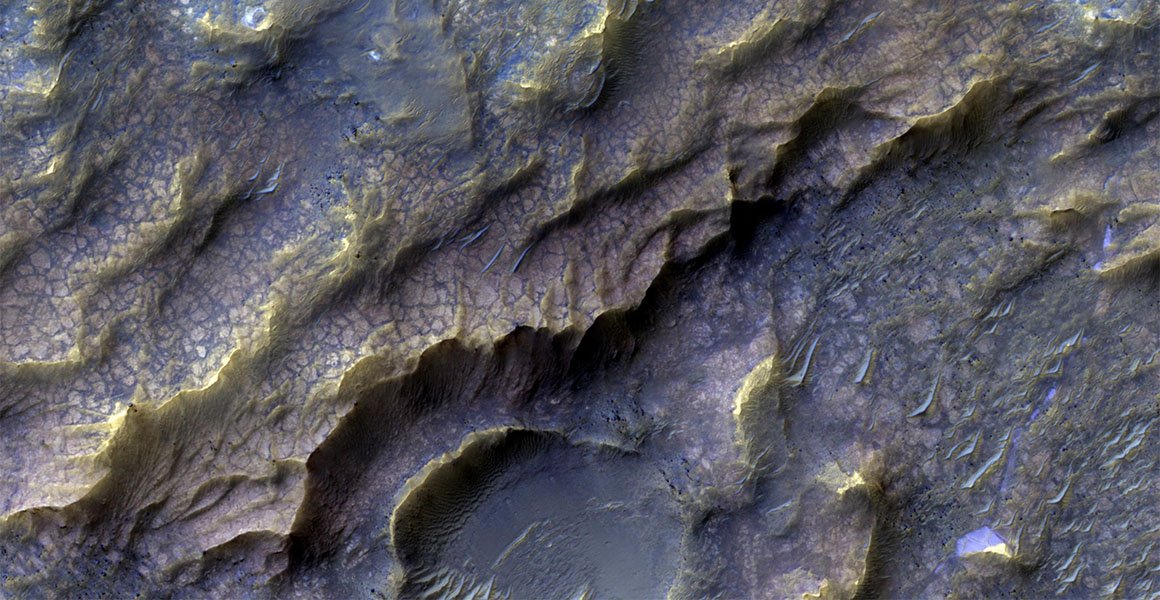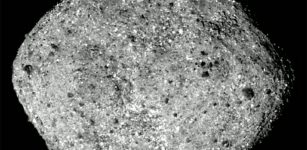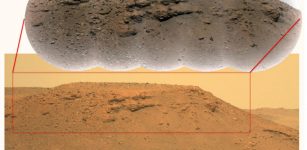Hypanis Valles In Focus: Mars Once Had An Ancient Ocean, Researchers Say
MessageToEagle.com – An ancient ocean and a water cycle similar to Earth’s, has been discovered on Mars and it suggests that a large body of water did indeed cover the northern third of the planet.
Sediment deposits at the mouth of Hypanis Valles, a river system on ancient Mars, were found to be remnants of a delta. This is a geological feature that would have formed where running water met a Martian sea.

The delta is at the planet’s north-south divide, which separates the southern highlands from the northern lowlands. Whether large seas or an ocean ever existed in the northern lowlands is one of the most important unanswered questions in the study of the geological evolution of Mars.
This particular area is studied because it had been proposed as a landing site for the upcoming ExoMars 2020 rover mission, which will be looking for signs of life – including signs of long-standing liquid water on the Red Planet.
‘A Martian ocean means that Mars probably had a very Earth-like water cycle, with rivers, lakes, and now oceans, all of which probably interacted as part of a planet-wide system,” Joel Davis, a postdoctoral researcher in the Planetary Surface Group at the Natural History Museum Museum, said in press release.
Davis who is a co-author of the paper and worked with colleagues from the Open University and Imperial College, added:
“We think this Earth-like hydrological cycle was active about 3.7 billion years ago, and started to shut down sometime after that. Our study is not definitive proof for an ocean, but these geological features are very hard to explain without one.’
So far, planetary scientists have not been able to reliably identify clear evidence for a large body of open water on Mars, like fine-grained oceanic deposits or clear shorelines, so they need alternative evidence.
River deltas (found on Mars before, but only in craters) are formed when a river meets a slower-moving or still body of water and slows down. Any small sediments that the river is carrying settle on the ground and form a geological feature over time.
The study also shows how the Mars ocean retreated, as the climate became colder and drier. Water levels dropped by nearly 500 metres, forcing the Hypanis delta (the largest known delta identified on Mars so far) to grow outwards.
About 3.6 billion years ago, the water system dried up and disappeared, possibly because of a change in the ancient climate. Now, freezing surface temperatures on the planet mean there is no liquid water on the surface of Mars, although an underground lake has recently been found.
‘The research has significantly contributed to our understanding of the climate on early Mars, which we now know went from having a water cycle similar to that of Earth to being a cold, desert-like landscape in a relatively short period,’ added Dr Peter Fawdon of the Open University, lead author of the paper.
‘We would like to gain a better understanding of how many of these fluvial deltas exist on Mars so that we can determine the position and size of its ancient seas.’
MessageToEagle.com










